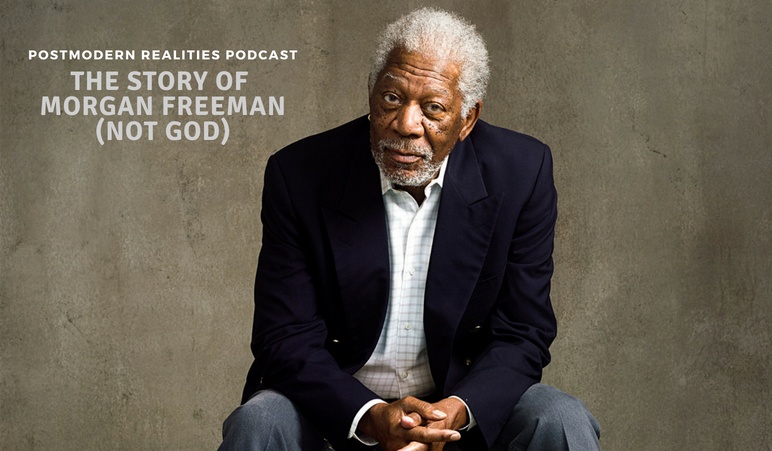“The cable TV series The Story of God with Morgan Freeman will return for a third season in 2019 on the National Geographic Channel. Hosted by Freeman who famously played ‘God’ in the 2003 movie Bruce Almighty, the show attempts to be a comparative religion course translated into ‘edutainment.’ Like many such courses, it espouses the claim that all religions are equally valid in their truth claims. Freeman and his writers emphasize similarities between religions in the attempt to foster mutual understanding and tolerance between religious people. But The Story of God is also honest about the differences between religions and at points seems to admit that Christianity was a genuine improvement over earlier religions. Yet the show takes an evolutionary approach to religion familiar from secular anthropology. Different religions are explained as various cultural responses to the same human ‘instincts’ that are ‘hard-wired’ into our brains. Thus Freeman typically concludes that a particular aspect of religion — belief in God, miracles, the afterlife, the end of the world — is grounded in ‘human nature’ and contributes to the survival of the species by giving us ‘comfort’ or helping us ‘cope’ with fear and suffering. The Story of God is mostly accurate and fair but is guided by naturalistic assumptions and occasionally includes Freeman’s own New Age beliefs, such as the quasi-pantheist doctrine that every human being is God. Freeman is no Oprah, so it is unclear how much influence his theological ideas have on average Americans, but his series does illustrate some trends already prevalent in today’s culture. Indeed, it reflects an interesting combination of scientism and anti-intellectualism.”
This Postmodern Realities episode is a conversation with Journal author author John McAteer about his Volume 41 # 3 feature article,“The Story of Morgan Freeman (Not God).”
We’d also like to invite you to subscribe to the Journal. To subscribe to the Journal, please click here.
When you to subscribe to the Journal, you join the team of print subscribers whose paid subscriptions help provide the resources at equip.org that minister to people worldwide. These resources include our free online-exclusive articles, such as this review, as well as our free Postmodern Realities podcast.
Another way you can support keeping our resources free is by leaving us a tip. A tip is just a small amount, like $3 or $5, which is the cost for some of a latte, lunch out, or coffee drink. To leave a tip, click here.
Other related articles and Postmodern Realities podcasts:
Episode 067: Spielberg’s Nostalgia for Reality in Ready Player One
Spielberg’s Nostalgia for Reality in Ready Player One
Episode 058: A Movie Review of The Shape of Water
How The Shape of Water’s Fish-Man Symbolizes Christian Grace
Episode 054: The Last Jedi: A Star Wars Movie for the Era of “the Nones”
The Last Jedi: A Star Wars Movie for the Era of “the Nones”
Episode 041: The Gracious Heroism of Wonder Woman
The Gracious Heroism of Wonder Woman
Episode 039: The Gospel According to Marvel
The Gospel According to Marvel
Episode 024: Dr. Strange (film review with spoilers)
Fighting Scientism with the Occult in Doctor Strange
Episode 017: Suicide Squad, Deadpool, and the Rise of the Comic Book Antihero
Suicide Squad, Deadpool, and the Rise of the Comic Book Antihero
Jesus Films: Who Does Hollywood Say That I Am?
“HBO’s Westworld and the Ethics of Artificial Intelligence.”
The Artistic Pro-Life Theme in Netflix’s I Am Mother
Postmodern Realities Episode 132: The Artistic Pro-Life Theme in Netflix’s I Am Mother
May the Force Bewitch You: Evaluating the Star Wars Worldview
The Matrix: Unloaded Revelations
Breaking Bad’s Addicting Defense of Moral Realism
A Wrinkle in Time: Drawing Apologetic Value from a De-Christianized Film
